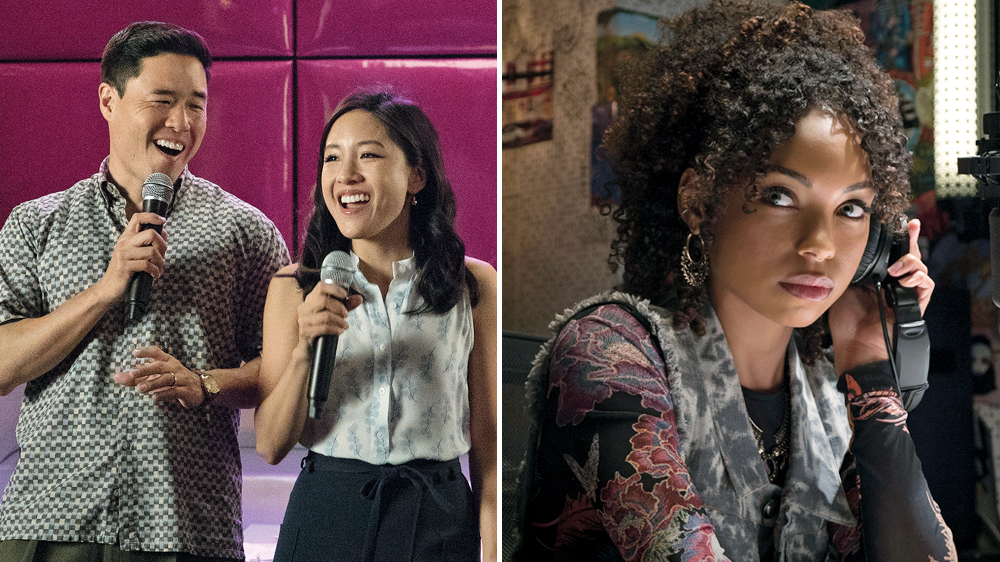Emmys: ‘Dear White People,’ ‘One Day At A Time’ Lead List of Inclusive Comedy Contenders
By Jamie Broadnax
LOS ANGELES (Variety.com) – Ten years ago the TV landscape didn’t much lend itself to diversity. Straight, white, able-bodied men dominated the medium. Today, however, the TV terrain is slowly diversifying with women of color, people with disabilities and queer characters — and in the comedy genre especially, stories are becoming more inclusive.
“Any kind of storytelling that seeks to tell fundamental truths about the human condition can be inclusive,” says Justin Simien, who executive produces “Dear White People” for Netflix. “Comedy does have a unique power, however, in that laughter can be so seductive. It allows us to think about and explore those forbidden and difficult little topics that we might not otherwise, by taking the pressure off a bit.”
While “” explores racial relations and political activism in a college campus setting, Kenya Barris’ ABC comedy “Black-ish” takes on the topics of slavery, police shootings and the general black experience in today’s world through the eyes of an affluent family. Barris spun off the eldest child from “Black-ish” into a comedy of her own, titled “Grown-ish,” to aim such stories at a slightly younger demographic. And on TBS, Tracy Morgan and Jordan Peele have “The Last O.G.,” centered on a man who gets out of prison after 15 years and encounters gentrification in his old neighborhood.
When “Fresh Off the Boat,” now in its fourth season, debuted in 2015, it became the first Asian-American comedy to air on primetime since Margaret Cho’s “All-American Girl” in 1994.
“[Comedy] can be inclusionary in reflecting people’s experiences back to them and laughing at the thought that other people went through similar things,” says “” executive producer Nahnatchka Khan. “It’s cool to be able to use comedy as a way to make people feel like they’re a part of a bigger collective, rather than as a way to divide.”
Such shows as the CW’s “Jane the Virgin” and Netflix’s “One Day at a Time,” meanwhile, reflect the Latinx community. The latter show also explores stories about mental illness, immigration, sexism, homophobia and racism, and features queer and non-binary characters.
“We loved the idea of putting [a non-binary character] into the conversation, especially about teens, because they are figuring out who they are, and constantly told that they’re wrong,” says “” co-creator and co-showrunner Mike Royce. “Not so long ago people said, ‘You’re not gay, you’re confused.’ Well, non-binary people hear that, too, and we wanted to validate their experience and existence, and show support, while at the same time acknowledging that this is a new concept for some people.”
“One Day at a Time” and the FXX comedy “You’re the Worst” depict PTSD and depression that many veterans experience after serving, while comedies including Showtime’s “SMILF” and “Shameless” shine a light on bipolar disorder; the CW’s “Crazy Ex-Girlfriend” has diagnosed its titular character with BPD (borderline personality disorder).
Scott Silveri’s “Speechless” (on ABC) centers on a family whose eldest child has cerebral palsy and is non-verbal. He uses a wheelchair and a word board to get around and communicate, respectively. Micah Fowler, who plays the role, has cerebral palsy in real life.
“Having a range of perspectives allows you to tell stories through a different lens and approach things from fresh angles. If you’re straining everything through the same filter, you’re always going to wind up with the same product,” Khan says.
Today’s inclusive narratives also allow women to navigate worlds traditionally dominated by men. The Amazon series “The Marvelous Mrs. Maisel,” from Amy Sherman-Palladino and Dan Palladino, depicts a 1950s housewife who enters the world of stand-up comedy. Frankie Shaw’s “SMILF” follows a single mother who dreams of being a professional basketball player. And Netflix and Spike Lee’s “She’s Gotta Have It” centers on a woman with three lovers — a concept that used to be reserved for male characters.
“Seeing yourself on television is an extremely powerful experience that says, ‘I belong,’ ” Royce says. “The opposite is also true — not seeing yourself sends the message that maybe ‘I’m not wanted or valid.’”
But nuanced storytelling is key when depicting serious topics in a humorous setting, notes Simien, who admits that often the “seduction of comedy” can mask “deeply ingrained stereotypes in the guise of entertainment.”
Last year, Donald Glover became the first African-American to win an Emmy for directing (for the FX series “Atlanta” that he also created and stars in). He took an additional win that night for comedy actor, alongside fellow nominees Anthony Anderson (“Black-ish” ) and Aziz Ansari (“Master of None”). Multi-hyphenate Lena Waithe became the first African-American woman to win for comedy writing, alongside Ansari, for “Master of None.”
There is no denying the landscape is changing, but Simien believes there is still more work to do.
“It’s exciting to see the progress that’s happening in culture,” he says, “but systemic oppression of people of color and women is so pervasive in our society that it can be hard to realize how deeply rooted it is. There are almost 40 million black people in America, making up over 12% of the population. And yet in our country, 90% of all showrunners are white, with 80% being male. Only 4.8% of all TV writers are black. The statistics for other marginalized groups are just as grim, if not worse. …Culture has only begun to accurately reflect the depth and diversity of the people contributing to and experiencing it.”

